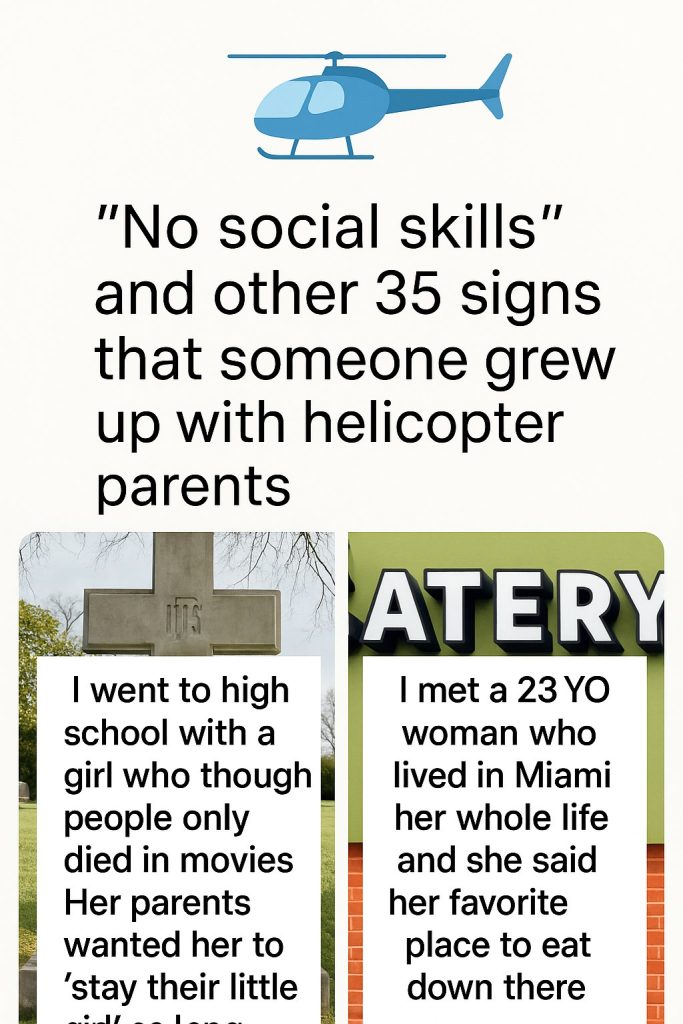Growing up under the watchful eye of helicopter parents is often joked about, but emerging stories reveal a complex reality for many young adults. A recent account of a 23-year-old woman from Miami has brought renewed attention to the subtle—and sometimes not-so-subtle—ways overparenting can shape social skills, independence, and overall emotional well-being.
This young woman, who has lived in Miami all her life, became the focus of online discussions after someone shared her experience encountering severe social and practical challenges despite her age. The phrase “no social skills” kept appearing, sparking curiosity about what specific behaviors and signs indicate a childhood dominated by helicopter parenting.
Helicopter parenting generally refers to an overly protective and controlling style where parents are heavily involved in every aspect of their child’s life. This parenting approach, while often well-intentioned, has shown to correlate with several developmental challenges when children reach adulthood.
Experts and psychologists note that the 23-year-old Miami woman’s struggles mirror a broader pattern. Below are some of the 35 signs that someone may have grown up with helicopter parents, based on compiled behaviors, social observations, and recent psychological research:
- Poor conflict resolution skills: Difficulty managing disagreements without parental mediation.
- Overdependence: Reliance on others for decision-making or routine tasks.
- Fear of failure: Intense anxiety around making mistakes, possibly due to high parental expectations.
- Minimal social experience: Limited interactions beyond family, often resulting in awkwardness or social anxiety.
- Lack of initiative: Hesitance or inability to act independently in personal or professional settings.
- Inability to handle criticism: Easily upset by feedback or negative input.
- Low self-confidence: Reduced belief in personal abilities and judgment.
- Difficulty managing finances: Struggles with budgeting or understanding money, often because parents managed these aspects early on.
- Need for constant reassurance: Regularly seeks approval or validation from others.
- Limited problem-solving skills: Finds it hard to resolve everyday challenges alone.
These signs are part of a much larger list that many adults who grew up in similar environments recognize. The Miami woman’s story has helped shed light on the real-life consequences of helicopter parenting that go beyond overprotection—impacting social integration, emotional resilience, and life skills.
Psychologists warn that while families naturally want to protect their children, it becomes problematic when that protection stunts growth. Research from 2024 emphasizes that overparenting may delay critical development stages, leaving young adults ill-prepared for independence.
Social media users have flocked to share their own experiences and tips on breaking free from these patterns. Many suggest building social skills through gradual exposure, therapy, and seeking mentorship outside the family unit to cultivate autonomy.
Ultimately, the story of this Miami woman is not just a cautionary tale but a call to rethink parenting strategies in today’s fast-paced and connected world. Raising resilient, socially adept adults may require less hovering and more encouragement to learn through experience—including failures.
As the conversation grows, parents and young adults alike are encouraged to foster environments that balance support with freedom, empowering the next generation to thrive socially and emotionally without the shadow of helicopter oversight.



